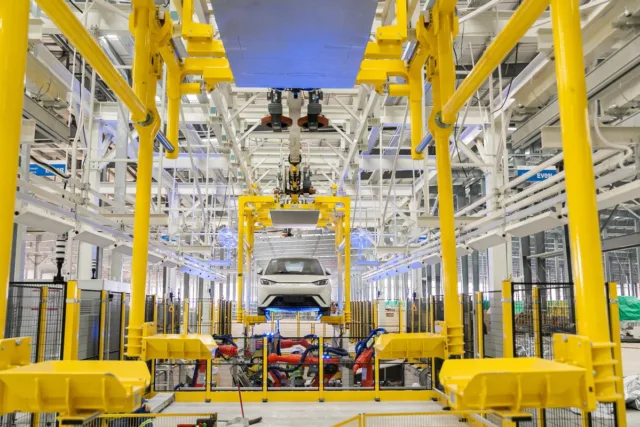:strip_icc()/i.s3.glbimg.com/v1/AUTH_37554604729d4b2f9f3eb9ad8a691345/internal_photos/bs/2025/V/y/TwcDAtQZWX6gtNz2Ri5g/img2.jpg)
A well-known tug-of-war between automakers based in Brazil and China’s BYD escalated this week. Anfavea, the association representing automakers already operating in Brazil, said its members will suspend ongoing investment plans, which total around R$120 billion over the decade, if the Brazilian government grants BYD’s request to reduce tariffs on imported semi-assembled cars.
The Brazilian Foreign Trade Chamber (Camex) may soon announce a tariff reduction from 18% to 10% and from 12% to 10%, granting BYD’s request. BYD said it needs this reduction for a year until its factory in Camaçari, Bahia, is ready to produce with domestic components.
Earlier this week, Anfavea president Igor Calvet posted on social media that Anfavea members will review the announced investments. “Brazil cannot trade industrialization for the illusion of assembly,” Mr. Calvet emphasized.
On the same day, Sindipeças, which represents the auto parts industry, also released a statement. Sindipeças sent a letter to Vice President Geraldo Alckmin, who is also Minister of Development, Industry, Commerce, and Services.
In its letter to Mr. Alckmin, Sindipeças noted that, unlike Brazil, “countries with strong economies have sought tariff protection as a restriction factor” against the “massive” entry of Chinese brands. “Even with the intense and staggering influx of finished, imported passenger vehicles, with tariffs of 12% and 18%, it is clear that, unsatisfied, BYD persists in demanding a significant reduction in tariffs,” the letter emphasizes.
In an interview with Valor, Alexandre Baldy, vice president of BYD in Brazil, who is in Brasília this week to monitor the Camex deliberations, reacted harshly to Anfavea’s statements.
“The notorious foreign automaker barons cannot offer the innovation and technology of BYD vehicles,” said Mr. Baldy.
Mr. Baldy pointed out that when BYD’s electric models began arriving in Brazil, two major automakers with domestic production—Stellantis and Renault—reduced the prices of their electric models to face the competition. “Brazilian consumers don’t want to be slapped in the face by an outdated industry,” he said.
The executive hopes that Camex will rule favorably on BYD’s request, which, according to him, has component kits and machinery on ships en route to Brazil. “I don’t believe the chamber will give in to the blackmail of an old and outdated industry,” Mr. Baldy said. He noted that BYD “was one of the first” to announce an investment in Brazil, worth R$ 5.5 billion, and that R$2 billion “has already materialized.”
Regarding Sindipeça’s resistance, Mr. Baldy highlighted that the Chinese automaker signed a contract with the Bahia state government pledging to nationalize local production within 12 months.
On Tuesday (29), the Brazilian Association of Automotive Engineering (AEA) also released an open letter to the press. In the document, the AEA highlighted that it “expresses concern regarding the lack of concrete proposals from the companies applying (for the reduction of import tariffs on semi-assembled vehicles) to develop Brazilian engineering and, consequently, the effective localization of production, when—in reality—the country needs to encourage the training of technicians and engineers, a scenario that is only possible with the attraction of local development.”
Robots and other machines already installed at the factory, still under construction, await the arrival of the cars, which will come from China using the SKD (semi-knocked down) system, an acronym used in the industry for the import of semi-assembled vehicles. A total of 870 people already work at the factory, and during its opening ceremony earlier this month, 3,000 new positions were announced.
The BYD factory will begin production of two models: the subcompact Dolphin Mini, the brand’s most affordable model, and the Song Plus SUV.









